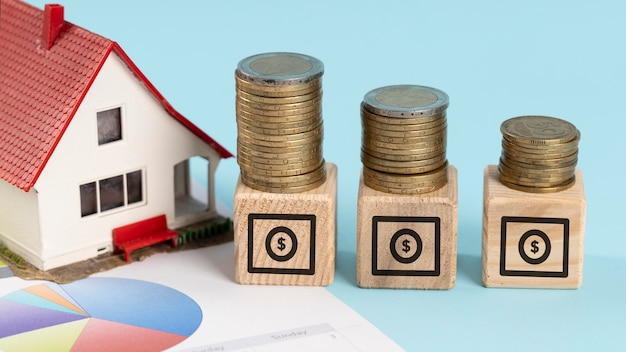Ever wondered why house prices go up and down? Well, I’ve been thinking about it a lot, especially after my last post about why property bidding wars happen. Knowing how prices change can help you make smarter buying decisions. I believe it’s easier to predict the housing market than the stock market because house prices usually change more slowly. Plus, the real estate market isn’t as efficient as the stock market, which means there could be more opportunities for savvy investors to make a profit.
Let’s look at four examples of houses sold in San Francisco. About 70% of houses sold in this area have similar price changes. Even though the other 30% might not be as obvious, they still show signs of price recovery. But remember, real estate is local. What happens in San Francisco might not happen in your city, and vice versa. The aim here is to help you make a better buying decision if you think your housing market is on the up.
I’ve compared the sale prices of these houses to estimates from Redfin. I could’ve used Zillow, but I prefer Redfin’s interface and find their estimates more accurate. However, both Redfin and Zillow can sometimes get their estimates wrong. Smart buyers or sellers can use these mistakes to their advantage.
Here’s what I noticed from the charts:
- The final sale price of each house was much higher than Redfin’s estimate.
- Redfin seems to have updated their numerical estimates after the sale without updating the corresponding charts.
- All the houses sold for more than double the median home price in San Francisco, which shows strength in the market.
- House prices peaked in early 2022 and hit their lowest point in late 2023, showing about 18 months of weakness.
- Prices started to rise again in late 2023, with a 15% – 20% increase by April 2024.
- Prices tend to drop slowly during downturns and rise quickly during upswings.
- Current house prices have surpassed their previous all-time highs from 2022.
If you’re thinking about buying a house, remember that real estate downturns usually last between 1.5 to 4 years. The last big downturn happened from mid-2006 to mid-2010, with prices staying the same for a couple of years before bouncing back in 2012. So, it took six years for house prices to recover.
So, if you see prices starting to drop in your local market, it might be a good idea to wait at least a year before buying. After that, you can start looking for bargains. But be careful not to wait too long, or you might miss out on big savings as prices start to rise again.
If you’re serious about buying a house and plan to live there for at least five years, it’s better to buy a year or two early than even a month too late. Even if you see similar houses selling for less than yours for a few years, when the market rebounds, there could be bidding wars that push your house’s value back up.
Based on this case study, the best strategy for buyers might be to wait a year after noticing a downturn in the market, then offer 10% below the asking price. This way, you’re prepared for any further price drops over the next one to three years.
Buying during a downturn can be scary because it’s unlikely the market will recover quickly. But remember the old saying: buy low, sell high. If you can buy at a discount off an already reduced price one year from the peak, you’ll have some protection on the downside.
So, what should buyers do now that house prices have gone past their previous peaks? The smartest thing might be to wait until the fourth quarter of the year when the market usually cools down. Prices tend to spike in the first half of the year, drop off during the summer, rise again after Labor Day, and then drop again as the new year approaches.
It’s also worth noting that there’s been a shift in how people see real estate as an investment. More people are buying multiple houses for investment and retirement, not just one. This has led to an increase in demand, which is driving up prices.
While the future is uncertain, it seems like we’ve passed the bottom of the latest real estate downturn. So, buying real estate now is probably less risky than it was in 2022 or 2023. The key is not to pay too much above the fair market value, or you might have to wait a long time for the market to catch up to your purchase price.
Remember, buying a house is probably the biggest investment you’ll ever make, and there’s no guarantee it will go up in value. So, it’s important to stay informed about the market and think carefully about your buying strategy. Good luck with your property search!
What do you think? Have you noticed any changes in house prices in your market? Let me know in the comments.
